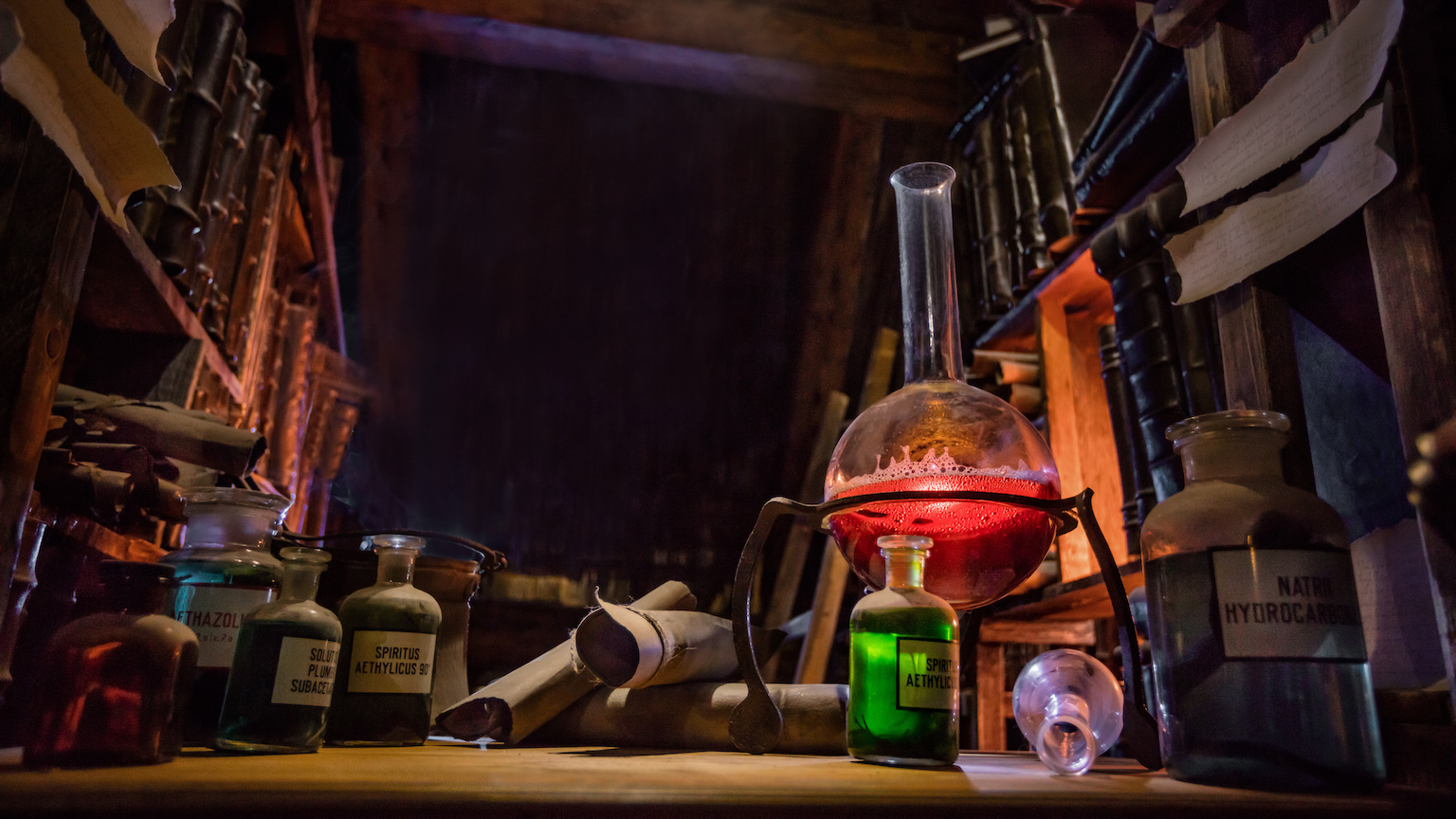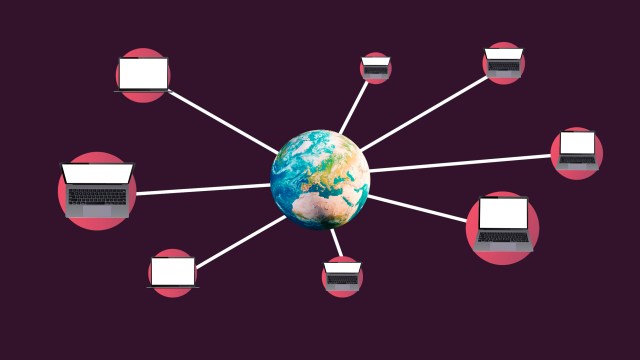Are some things so taboo that science should never research them?

- Powerful new technologies can be used for good or evil.
- Should society regulate what kinds of scientific research are allowed? And if so, who decides? How could such controls be implemented across countries with different laws?
- Science itself is neither good nor evil. It is a tool, and it is up to us to decide how we will use it.
We live in a time of spectacular scientific discoveries. Last week, we saw the first image ever recorded of the giant black hole at the center of the Milky Way. The James Webb Space Telescope is ready to start sending images of the earliest stars, helping us tell the story of our cosmic origins. As a bonus, the telescope will also gather information on the atmospheres of distant planets. Within a decade or so, we might have compelling evidence of biological activity on other worlds.
Closer to Earth, bioengineering, quantum computing, and artificial intelligence advance resolutely forward. In their wake travel revolutions — in medicine, in automation, and possibly in the meaning of intelligence itself.
That’s the good stuff, and we are right to celebrate it. We have written extensively in these pages about the joy and privilege of being a scientist. But there is another side to scientific discovery that cannot be neglected amid the excitement of success. Indeed, science has a dark side — one where new technologies can be put to threatening uses, where they can go unregulated, and where they are accessible to large numbers of people.
It is in the contemplation of this dark side that science meets ethics, and the encounter is as essential as it is urgent.
The literary pursuit of ethics in discovery
In 1818, Mary Shelley published one of the greatest classics of gothic literature, Frankenstein; or, the Modern Prometheus. As we all know, it tells the story of a brilliant and anguished doctor who wanted to use the cutting-edge science of his time — the relationship between electricity and muscular motion — to bring the dead back to life.
The question her novel asked is as relevant as ever: Can science upset humanity’s inevitable defeat to time and decay?
Three decades before Shelley’s novel was published, the Italian Luigi Galvani had shown that electric pulses could make dead muscles twitch. Galvani even gave a demonstration of frogs hanging from a metal wire that twitched in a macabre choreography during a lightning storm. It must have been quite a sight.
Taking the conclusions from Galvani’s discovery to their logical extreme, scientists could now ask: If electricity can cause muscles to move, could one use it to resuscitate the dead? Can science, instead of religion, provide for our resurrection? (In a way, this is what defibrillation machines do, shocking the heart into beating again.) If so, would man then be like God?
We all know Shelley’s story ends in tragedy. Mirroring Adam and Eve, the “creature” implored his creator for a female companion so that he would not spend his days in loneliness, shunned by society. He promised his creator that he and his companion would live in isolation, far from humans. Horrified, Frankenstein refused. He did not want to create a race of monsters, far more powerful than humans, that could threaten the future of our species. (In the novel, the “creature” in no way resembles the zombie-like monster depicted in the movies.)
Taboo science
The novel examines the ethical boundaries of science: Should scientists have complete freedom to pursue their research? Or are certain themes taboo? And if so, who decides what those themes are? Should certain research topics then be censored? By whom? Given that there is no international organization with the legislative power to implement such a prohibition on a global scale, how is such research to be prevented? And to go a bit sci-fi, even if we can someday apply that kind of legislation on Earth, what about on the Moon, or on Mars? Could a rogue power — or, more realistically these days, a corporation — develop a research facility in space, well beyond the control of terrestrial authorities?
These are central questions in ethics and science, and they are very complex. Here is another example, and a practical one: Should we treat old age as a disease? If so, and assuming we arrive at a cure — or at least at a substantial increase in lifespan — who has the right to benefit?
If the so-called cure is expensive, which at first it certainly would be, only a small fraction of society would have access to it. In this case, society would be artificially split between those who can now live much longer, and those who cannot. This kind of split already exists thanks to widespread socioeconomic inequity. Large groups of people in many countries with weak economies have much shorter lifespans than the average inhabitant of a developed country. This new science would give a whole new dimension to the problem.
Then there is the question of how we deal with loss. If some people suddenly lived much longer lives, they would see many loved ones pass away. Would living longer improve their quality of life? Only, it seems, if extended longevity was accessible to all sectors of the population, and not just to the privileged few. But then, such a long-living population would add even more stress to our limited planetary resources. More food and more demand for energy means more planting and more pollution.
Every science dream can have its ethical nightmare
Nobel prize-winning geneticist Jennifer Doudna, a co-inventor of the CRISPR technology, has a powerful video on Big Think that poignantly demonstrates the thorny relationship between science and ethics. CRISPR is a true revolution in medicine, because it can address genetic diseases directly at the level of the gene. You edit the gene somewhat like you edit a text, cutting strings that are undesirable and pasting those that are. Many diseases are already being cured.
But this technology has its dark side. CRISPR allows for genetic modifications that can serve destructive purposes. For example, it could enable the creation of super-soldiers. In the video, many scientists and political thinkers express a strange combination of enchantment and alarm at the power of this new technique. Doudna relates a horrible nightmare where she confronts a genetically modified Hitler. The legacy of eugenics comes back to haunt her.
Who decides how far CRISPR should go?
These are only two examples of the very complex issues that meet at the intersection of scientific research and ethics. The initial impulse is to censor, make sure this kind of science never gets done, that Pandora’s box stays closed. But this kind of attitude is naïve at best. The difference between genetic research and research on, for example, nuclear weapons, is that research to design bombs and their delivery requires large-scale facilities that are easier to spot and control. With genetic research, this changes radically, as explored in the documentary series Unnatural Selection. Whether it serves evil intentions or good, this research is not tethered to large, expensive laboratories funded by governments. And if one country forbids it, others will not, and scientists will just move there. This already happened with stem-cell research a few years back.
However, we should be careful not to blame science. Science is not good or evil. It is a body of knowledge slowly accumulated over the years. The moral challenge stems from how this knowledge is used. We, humans, are the users. We are the ones who sow good or evil through the choices we make. Tools with such power require users with high moral standards. I, for one, don’t think we measure up.





